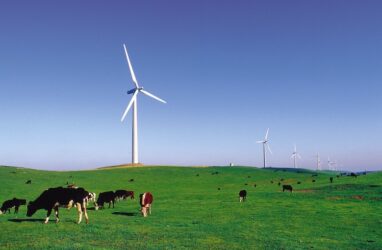Feed aggregator
EU CBAM legislative proposal could come in Q4, confirms top climate official
UK politicians urge government to squash biodiversity net gain uncertainty
Euro Markets: Midday Update
Microsoft turns April into record month for CDR buying as company grapples with AI boom
Real-world geoengineering experiments revealed by UK agency
Trials will test ways to block sunlight and slow climate crisis that threatens to trigger catastrophic tipping points
Real-world geoengineering experiments spanning the globe from the Arctic to the Great Barrier Reef are being funded by the UK government. They will test sun-reflecting particles in the stratosphere, brightening reflective clouds using sprays of seawater and pumping water on to sea ice to thicken it.
Getting this “critical missing scientific data” is vital with the Earth nearing several catastrophic climate tipping points, said the Advanced Research and Invention Agency (Aria), the government agency backing the plan. If demonstrated to be safe, geoengineering could temporarily cool the planet and give more time to tackle the root cause of the climate crisis: the burning of fossil fuels.
Continue reading...INTERVIEW: Verra doubles down on own ICVCM-approved carbon cookstoves methodology, sidesteps UN-backed approach
New reports tell us cattle and sheep farming can be sustainable – don’t believe them, it’s all bull | George Monbiot
Feeding the world sustainably is an incredibly complex challenge, yet some people are trying to sell us a bucolic fairytale
The fire that has just destroyed 500 hectares (1,230 acres) of Dartmoor should have been impossible. It should not be a fire-prone landscape. But sheep, cattle and ponies have made it so. They selectively browse out tree seedlings, preventing the return of temperate rainforest, which is extremely difficult to burn. In dry weather, the moor grass, bracken and heather covering the deforested landscape are tinder.
The plume of carbon dioxide and smoke released this week is one of the many impacts of livestock grazing. But several recent films, alongside celebrities, politicians, billionaires and far-right podcasts, seek to persuade us that cattle and sheep are good for the atmosphere and the living planet. This story, wrapped in romantic cottagecore, is now the most active and seductive frontier of climate-science denial. It is heavily promoted by the meat industry, which is as ruthless and machiavellian as the fossil fuel industry. It sows confusion among people desperately seeking to do the right thing in an age of misinformation.
George Monbiot is a Guardian columnist
Continue reading...Malaysian company partners with engineering major to explore CCUS tech for steel sector
Australia’s Nature Repair Market sees first project submitted
Two-thirds of global heating caused by richest 10%, study suggests
Paper in Nature Climate Change journal reveals major role wealthy emitters play in driving climate extremes
The world’s wealthiest 10% are responsible for two-thirds of global heating since 1990, driving droughts and heatwaves in the poorest parts of the world, according to a study.
While researchers have previously shown that higher income groups emit disproportionately large amounts of greenhouse gases, the latest survey is the first to try to pin down how that inequality translates into responsibility for climate breakdown. It offers a powerful argument for climate finance and wealth taxes by attempting to give an evidential basis for how many people in the developed world – including more than 50% of full-time employees in the UK – bear a heightened responsibility for the climate disasters affecting people who can least afford it.
Continue reading...Standard Chartered sees demand surge from converging carbon credit markets
Lack of smallholder support a risk for sustainable palm oil -report
EU demand for EVs could drive loss of 118k ha of forests by 2050, study warns
Climeworks secures carbon removal deal with Japanese shipping major
Japanese trading house joins alliance to leverage transition credits mechanism
Investor caution grows in carbon markets, but institutions push on amid political risk
How maximum security prison inmates and officers worked together to create a farm behind bars
Will the Coalition ditch its nuclear power policy?
The post Will the Coalition ditch its nuclear power policy? appeared first on RenewEconomy.
NEM Review: Networks push for fewer fences and more access to batteries and generation
The post NEM Review: Networks push for fewer fences and more access to batteries and generation appeared first on RenewEconomy.
Taking down wind turbines can be an explosive issue, but Australia is helping to spearhead solutions
The post Taking down wind turbines can be an explosive issue, but Australia is helping to spearhead solutions appeared first on RenewEconomy.






